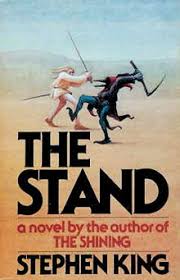Some of you have been asking my opinion regarding new Barnes & Noble CEO James Daunt’s plan for the struggling book retailer.
Daunt plans to make B&N stores stripped-down versions of what they currently are. The model here is the airport bookstore on one hand, the local, neighborhood bookstore on the other.
In other words, small bookstores that carry about the same inventory as the book section of the nearest Walmart, Costco, or Kroger.
So why do you even need a bookstore, if Walmart already stocks about the same number of books?
Daunt is British, and this might be a viable strategy for the British retail market, which is decades behind that of the United States.
It isn’t a winning strategy for the US, where Amazon dominates by virtue of its wide selection, low prices, and economies of scale.
Daunt clearly has no plan to compete with Amazon. He plans to compete with…small neighborhood bookstores that have already gone out of business in most of the U.S.
Forgive me if I’m underwhelmed.



